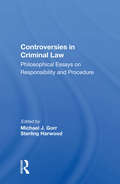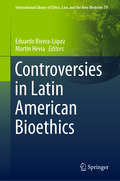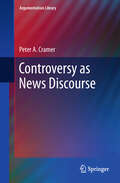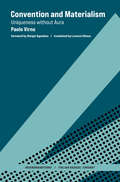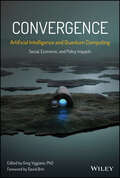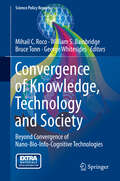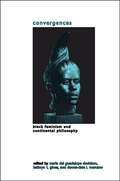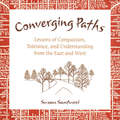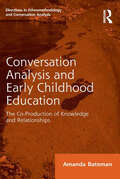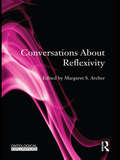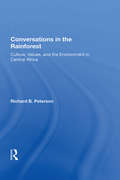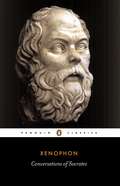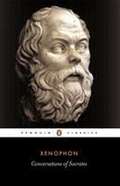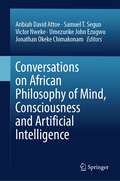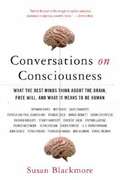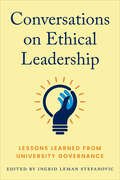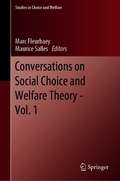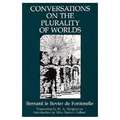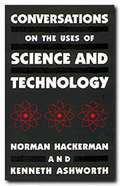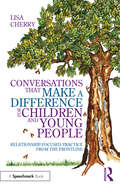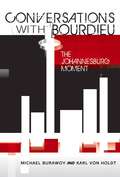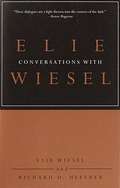- Table View
- List View
Controversies In Criminal Law: Philosophical Essays On Responsibility And Procedure
by Michael J. Gorr Sterling HarwoodWhen philosophers have turned their attention to criminal law, they have tended to emphasize problems about the criminalization of acts and the justification for the punishment of those who commit such acts. But there has been a recent wave of significant and exciting philosophical work on issues surrounding two other topics in criminal law: Given the performance of a criminal act, what establishes criminal? And what should the state be allowed to use in trying to establish liability? In this carefully edited volume, Michael J. Gorr and Sterling Harwood present a generous selection of papers representing the best of this new work. Avoiding overly abstract pieces in favor of essays that highlight both the philosophical questions and what actually happens on the street and in the courtroom, they have produced a book that is accessible and relevant to the concerns of students. Controversies in Criminal law is an innovative and useful contribution to the teaching of philosophy of law and the foundations of criminal justice. It will be widely used in philosophy departments, law schools, and schools of criminal justice.
Controversies in Latin American Bioethics (International Library of Ethics, Law, and the New Medicine #79)
by Eduardo Rivera-López Martin HeviaThis book offers a first rate selection of academic articles on Latin American bioethics. It covers different issues, such as vulnerability, abortion, biomedical research with human subjects, environment, exploitation, commodification, reproductive medicine, among others. Latin American bioethics has been, to an important extent, parochial and unable to meet stringent international standards of rational philosophical discussion. The new generations of bioethicists are changing this situation, and this book demonstrates that change. All articles are written from the perspective of Latin American scholars from several disciplines such as philosophy and law. Working with the tools of analytical philosophy and jurisprudence, this book defends views with rational argument, and opening for pluralistic discussion.
Controversy as News Discourse (Argumentation Library #19)
by Peter A. CramerThis book presents a constitutive approach to controversy based on a discourse analysis of news texts, focusing on the role of journalists as participants who shape public controversy for readers. Drawing data from the Reuters Corpus, the project identifies formulas that journalists use in reporting controversy and draws conclusions about how these serve professional and textual functions and how they shape public controversy as a natural, historical, and pragmatic event. While the traditions of dialectic and rhetoric have focused on the prescriptive aim of training participants to resolve controversies in philosophical dialogue or public debate settings, this orientation has tended to preempt questions about where controversy is located and how it is shaped. This project contributes to descriptive, ethnographic research about controversy, using discourse analysis to address a problem in argumentation.
Convention: A Philosophical Study
by David LewisConvention was immediately recognized as a major contribution to the subject and its significance has remained undiminished since its first publication in 1969. Lewis analyzes social conventions as regularities in the resolution of recurring coordination problems-situations characterized by interdependent decision processes in which common interests are at stake. Conventions are contrasted with other kinds of regularity, and conventions governing systems of communication are given special attention.
Convention and Materialism: Uniqueness without Aura (Insubordinations: Italian Radical Thought)
by Paolo VirnoThe first English translation of the book that established Paolo Virno as one of the most influential Italian thinkers of his generation.With the 1986 publication of this book in Italy, Paolo Virno established himself as one of the most influential Italian thinkers of his generation. Astonishingly, this crucial work has never before been published in an English translation. This MIT Press edition, translated by Italian philosopher and Insubordinations series editor Lorenzo Chiesa, is its first English-language version. Virno here engages, in an innovative and iconoclastic way, with some classical issues of philosophy involving experience, singularity, and the relation between ethics and language, while also offering a profoundly transformative political perspective that revolves around the Marxian notion of the "general intellect." Virno reconsiders Walter Benjamin's idea of a "loss of the aura" (brought on, Benjamin argued, by technical reproducibility), and postulates instead the existence of a new experience of uniqueness that, although deprived of every metaphysical aura, resides in the very process of late-capitalist serial reproduction. Writing after the defeat of contemporary leftist revolutionary movements in the West, Virno argues for the possibility of a "good life" originating immanently from existential and political crises. Taking speculative detours through the thought of philosophers ranging from Aquinas and Berkeley to Heidegger and Wittgenstein, with a specific focus on Kant and Hegel, Virno shows how a renewed reflection on basic theoretical problems helps us to better grasp what is happening now. This edition features a preface written by Virno in 2011.
Conventional Realism and Political Inquiry: Channeling Wittgenstein
by John G. GunnellWhen social scientists and social theorists turn to the work of philosophers for intellectual and practical authority, they typically assume that truth, reality, and meaning are to be found outside rather than within our conventional discursive practices. John G. Gunnell argues for conventional realism as a theory of social phenomena and an approach to the study of politics. Drawing on Wittgenstein’s critique of “mentalism” and traditional realism, Gunnell argues that everything we designate as “real” is rendered conventionally, which entails a rejection of the widely accepted distinction between what is natural and what is conventional. The terms “reality” and “world” have no meaning outside the contexts of specific claims and assumptions about what exists and how it behaves. And rather than a mysterious source and repository of prelinguistic meaning, the “mind” is simply our linguistic capacities. Taking readers through contemporary forms of mentalism and realism in both philosophy and American political science and theory, Gunnell also analyzes the philosophical challenges to these positions mounted by Wittgenstein and those who can be construed as his successors.
Conventionalism: From Poincaré to Quine
by Yemima Ben-MenahemThe daring idea that convention - human decision - lies at the root both of necessary truths and much of empirical science reverberates through twentieth-century philosophy, constituting a revolution comparable to Kant's Copernican revolution. This 2006 book provides a comprehensive study of Conventionalism. Drawing a distinction between two conventionalist theses, the under-determination of science by empirical fact, and the linguistic account of necessity, Yemima Ben-Menahem traces the evolution of both ideas to their origins in Poincaré's geometric conventionalism. She argues that the radical extrapolations of Poincaré's ideas by later thinkers, including Wittgenstein, Quine, and Carnap, eventually led to the decline of conventionalism. This book provides a fresh perspective on twentieth-century philosophy. Many of the major themes of contemporary philosophy emerge in this book as arising from engagement with the challenge of conventionalism.
Convergence: Social, Economic, and Policy Impacts
by Greg ViggianoPrepare for the coming convergence of AI and quantum computing A collection of essays from 20 renowned, international authors working in industry, academia, and government, Convergence: Artificial Intelligence and Quantum Computing explains the impending convergence of artificial intelligence and quantum computing. A diversity of viewpoints is presented, each offering their view of this coming watershed event. In the book, you&’ll discover that we&’re on the cusp of seeing the stuff of science fiction become reality, with huge implications for ripping up the existing social fabric, global economy, and current geopolitical order. Along with an incisive foreword by Hugo- and Nebula-award winning author David Brin, you&’ll also find: Explorations of the increasing pace of technological development Explanations of why seemingly unusual and surprising breakthroughs might be just around the corner Maps to navigate the potential minefields that await us as AI and quantum computing come togetherA fascinating and thought-provoking compilation of insights from some of the leading technological voices in the world, Convergence convincingly argues that we should prepare for a world in which very little will remain the same and shows us how to get ready.
Convergence of Knowledge, Technology and Society: Beyond Convergence of Nano-Bio-Info-Cognitive Technologies (Science Policy Reports)
by Mihail C. Roco William S. Bainbridge Bruce Tonn George WhitesidesThis volume aims to document the most important worldwide accomplishments in converging knowledge and technology, including converging platforms, methods of convergence, societal implications, and governance in the last ten years. Convergence in knowledge, technology, and society is the accelerating, transformative interaction among seemingly distinct scientific disciplines, technologies, and communities to achieve mutual compatibility, synergism, and integration, and through this process to create added value for societal benefit. It is a movement that is recognized by scientists and thought leaders around the world as having the potential to provide far-reaching solutions to many of today's complex knowledge, technology, and human development challenges. Four essential and interdependent convergence platforms of human activity are defined in the first part of this report: nanotechnology-biotechnology-information technology and cognitive science ("NBIC") foundational tools; Earth-scale environmental systems; human-scale activities; and convergence methods for societal-scale activities. The report then presents the main implications of convergence for human physical potential, cognition and communication, productivity and societal outcomes, education and physical infrastructure, sustainability, and innovative and responsible governance. As a whole, the report presents a new model for convergence. To effectively take advantage of this potential, a proactive governance approach is suggested. The study identifies an international opportunity to develop and apply convergence for technological, economic, environmental, and societal benefits. The panel also suggests an opportunity in the United States for implementing a program aimed at focusing disparate R and D energies into a coherent activity - a "Societal Convergence Initiative". This study received input from leading academic, industry, government, and NGO experts from the United States, Latin America, Europe, Asia, and Australia.
Convergences: Black Feminism and Continental Philosophy (SUNY series in Gender Theory)
by George YancyA range of themes—race and gender, sexuality, otherness, sisterhood, and agency—run throughout this collection, and the chapters constitute a collective discourse at the intersection of Black feminist thought and continental philosophy, converging on a similar set of questions and concerns. These convergences are not random or forced, but are in many ways natural and necessary: the same issues of agency, identity, alienation, and power inevitably are addressed by both camps. Never before has a group of scholars worked together to examine the resources these two traditions can offer one another. By bringing the relationship between these two critical fields of thought to the forefront, the book will encourage scholars to engage in new dialogues about how each can inform the other. If contemporary philosophy is troubled by the fact that it can be too limited, too closed, too white, too male, then this groundbreaking book confronts and challenges these problems.
Converging Paths
by Susan SantucciIn Converging Paths, Susan Santucci gathers the world's greatest religious insights into one volume that is easy-to-read, thought-provoking, and inspirational. Each short-entry focuses on a single aspect of the wisdom shared by major world religions. Quotations from mystics, philosophers, and contemporary writers help readers make connections between traditional teachings and their own spiritual path. The result is a quick, clear introduction to spiritual traditions from around the world without lengthy, esoteric discussions. These wonderful examples of shared values and religious diversity will appeal to students of comparative religions and anyone seeking to further their spiritual journey.
Conversation Analysis and Early Childhood Education: The Co-Production of Knowledge and Relationships (Directions in Ethnomethodology and Conversation Analysis)
by Amanda BatemanThis book provides insight into the everyday activities co-produced by teachers and young children, demonstrating the fine details of teaching and learning as knowledge is shared through the everyday activities of talk-in-interaction. Adopting an ethnomethodological perspective, together with conversation analysis and membership categorisation analysis, it reveals how teaching and learning are jointly accomplished during activities such as pretend play episodes, during disputes, managing illness and talking about the environment. Through in-depth studies of child-teacher interactions, the book explores the means by which knowledge is transferred and episodes of teaching and learning are co-constructed by participants, shedding light on the co-production of social order, the communication of knowledge and manner in which professional and relational identities are made relevant in interaction. As such, Conversation Analysis and Early Childhood Education will be of interest not only to scholars of ethnomethodology and conversation analysis, but also to those working in the areas of early childhood studies and pedagogy.
Conversations About Reflexivity
by Margaret S. Archer" Reflexivity" is defined as the regular exercise of the mental ability, shared by all normal people, to consider themselves in relation to their (social) contexts and vice versa. In addition to this sociological interest, it allows us to hold idle or trivial internal conversations. Focussing fully on this phenomenon, this book discusses the three main questions associated with this subject in detail. Where does the ability to be "reflexive" comes from? What part do our internal reflexive deliberations play in designing the courses of action we take: subordinate to habitual action or not? Is "reflexivity" a homogeneous practice for all people and invariant over history? In addressing these questions, contributors engage critically with the most relevant studies by luminaries such as G.H Mead, C.S. Pierce, Habermas, Luhmann, Beck, Giddens and Bourdieu. Most contributors are leading Pragmatists or Critical Realists, associated with the "Reflexivity Forum" an informal, international and inter-disciplinary group. This combination of reference to influential writers of the past, and the best of modern theory has produced a fascinating book that is essential reading for all students with a serious interest in social theory or critical realism.
Conversations In The Rainforest: Culture, Values, And The Environment In Central Africa
by Richard PetersonA rich, interdisciplinary study of Central African land ethics incorporating conversations with local rainforest inhabitants that yield vibrant new insights into the dilemmas of sustaining Africa's rainforests and its people. In Conversations in the Rainforest, Richard B. Peterson combines interdisciplinary research and intimate, first-hand convers
Conversations of Socrates
by XenophonAfter the execution of Socrates in 399 BC, a number of his followers wrote dialogues featuring him as the protagonist and, in so doing, transformed the great philosopher into a legendary figure. Xenophon's portrait is the only one other than Plato's to survive, and while it offers a very personal interpretation of Socratic thought, it also reveals much about the man and his philosophical views. In 'Socrates' Defence' Xenophon defends his mentor against charges of arrogance made at his trial, while the 'Memoirs of Socrates' also starts with an impassioned plea for the rehabilitation of a wronged reputation. Along with 'The Estate-Manager', a practical economic treatise, and 'The Dinner-Party', a sparkling exploration of love, Xenophon's dialogues offer fascinating insights into the Socratic world and into the intellectual atmosphere and daily life of ancient Greece.
Conversations of Socrates
by Xenophon Hugh Tredennick Robin WaterfieldAfter the execution of Socrates in 399 BC, a number of his followers wrote dialogues featuring him as the protagonist and, in so doing, transformed the great philosopher into a legendary figure. Xenophon’s portrait is the only one other than Plato’s to survive, and while it offers a very personal interpretation of Socratic thought, it also reveals much about the man and his philosophical views. In ‘Socrates’ Defence’ Xenophon defends his mentor against charges of arrogance made at his trial, while the ‘Memoirs of Socrates’ also starts with an impassioned plea for the rehabilitation of a wronged reputation. Along with ‘The Estate-Manager’, a practical economic treatise, and ‘The Dinner-Party’, a sparkling exploration of love, Xenophon’s dialogues offer fascinating insights into the Socratic world and into the intellectual atmosphere and daily life of ancient Greece.
Conversations on African Philosophy of Mind, Consciousness and Artificial Intelligence
by Aribiah David Attoe Samuel T. Segun Victor Nweke Umezurike John Ezugwu Jonathan Okeke ChimakonamThis book offers a first glimpse into contemporary African Philosophical thought, which covers issues related to the mind-body relationships, the problem of consciousness, the ethics of artificial intelligence, the meaning of life and other topics. Taking inspiration from the conversational tradition in African philosophy, this book not only engages with and takes inspiration from traditional African thought, but also engages with philosophical views outside the philosophical tradition in a bid to present a holistic understanding of the problems that are central to the book. The volume is relevant for professional African philosophers, philosophers of mind, philosophers of AI, undergraduate and postgraduate philosophy students, and African Studies scholars.
Conversations on Consciousness: What the Best Minds Think about the Brain, Free Will, and What It Means to Be Human
by Susan BlackmoreIn Conversations on Consciousness, Susan Blackmore interviews some of the great minds of our time, a who's who of eminent thinkers, all of whom have devoted much of their lives to understanding the concept of consciousness. The interviewees, ranging from major philosophers to renowned scientists, talk candidly with Blackmore about some of the key philosophical issues confronting us in a series of conversations that are revealing, insightful, and stimulating. They ruminate on the nature of consciousness (is it something apart from the brain?) and discuss if it is even possible to understand the human mind. Some of these thinkers say no, but most believe that we will pierce the mystery surrounding consciousness, and that neuroscience will provide the key. Blackmore goes beyond the issue of consciousness to ask other intriguing questions: Is there free will? (A question which yields many conflicted replies, with most saying yes and no.) If not, how does this effect the way you live your life; and more broadly, how has your work changed the way you live? <P><P> Paired with an introduction and extensive glossary that provide helpful background information, these provocative conversations illuminate how some of the greatest minds tackle some of the most difficult questions about human nature.
Conversations on Ethical Leadership: Lessons Learned from University Governance (UTP Insights)
by Ingrid Leman StefanovicHighlighting ethical leadership strategies, Conversations on Ethical Leadership explores what makes for strong, well-informed, morally sound decision-making at all levels of an organization. In addressing a range of challenges faced by universities and applying those lessons to the broader community of the public and private sectors, Ingrid Leman Stefanovic and her contributors tackle a host of issues related to advancing ethics, diversity, inclusiveness, and the art of moral leadership. Each chapter, written by an author with roots in the academy, includes a subsequent commentary by a community leader who highlights the broader takeaways that emerge for society from the university experience. In this way, the book becomes a conversation between the academic and non-academic worlds about issues that affect any prominent organization. It offers a unique range of novel and timely topics, from responsibility-centred budgeting to post-pandemic planning, responsiveness to climate change, Indigenous leadership, free speech, academic integrity, and much more. In doing so, Conversations on Ethical Leadership ultimately reveals how we can build and preserve an ethically responsible sense of purpose at our post-secondary learning institutions and beyond.
Conversations on Social Choice and Welfare Theory - Vol. 1 (Studies in Choice and Welfare)
by Marc Fleurbaey Maurice SallesThis volume presents interviews that have been conducted from the 1980s to the present with important scholars of social choice and welfare theory. Starting with a brief history of social choice and welfare theory written by the book editors, it features 15 conversations with four Nobel Laureates and other key scholars in the discipline. The volume is divided into two parts. The first part presents four conversations with the founding fathers of modern social choice and welfare theory: Kenneth Arrow, John Harsanyi, Paul Samuelson, and Amartya Sen. The second part includes conversations with scholars who made important contributions to the discipline from the early 1970s onwards. This book will appeal to anyone interested in the history of economics, and the history of social choice and welfare theory in particular.
Conversations on the Plurality of Worlds
by Bernard Le Bovier De Fontenelle H. A. Hargreaves Nina R. GelbartSurveying the night sky, a charming philosopher and his hostess, the Marquise, are considering the possibility of travelers from the moon. "What if they were skillful enough to navigate on the outer surface of our air, and from there, through their curiosity to see us, they angled for us like fish? Would that please you?" asks the philosopher. "Why not?" the Marquise replies. "As for me, I'd put myself into their nets of my own volition just to have the pleasure of seeing those who caught me. " In this imaginary conversation of three hundred years ago, readers can share the excitement of a new, extremely daring view of the universe. Conversations on the Plurality of Worlds (Entretiens sur la pluraliteacute; des mondes), first published in 1686, is one of the best loved classics of the early French enlightenment. Through a series of informal dialogues that take place on successive evenings in the marquise's moonlit gardens, Fontenelle describes the new cosmology of the Copernican world view with matchless clarity, imagination, and wit. Moreover, he boldly makes his interlocutor a woman, inviting female participation in the almost exclusively male province of scientific discourse. The popular Fontenelle lived through an entire century, from 1657 to 1757, and wrote prolifically. H. A. Hargreaves's fresh, appealing translation brings the author's masterpiece to new generations of readers, while the introduction by Nina Rattner Gelbart clearly demonstrates the importance of the Conversations for the history of science, of women, of literature, and of French civilization, and for the popularization of culture.
Conversations on the Uses of Science and Technology
by Norman Hackerman Kenneth Ashworth"In the interest of reducing financial support some policy makers in Washington and in state capitols are questioning the contributions of science to society. Or they believe research can be made more useful if it is controlled and directed by government to solve specific problems.<P> The authors disagree with both these strategies and discuss how understanding nature (that is, science) is the underpinning of humankind's progress in improved comforts, economic progress, and health. In making their case they also address the primary requirement of ensuring a pool of competent scientists, mathematicians, and engineers as well as the need for educating non-scientists about science."<P> --BOOK JACKET. Title, Summary field provided by Blackwell North America, Inc. All Rights Reserved
Conversations that Make a Difference for Children and Young People: Relationship-Focused Practice from the Frontline
by Lisa CherryIn this unique book, international trainer and consultant Lisa Cherry invites professionals from education, social work and healthcare to engage in conversations on a range of pertinent topics and issues affecting children and young people today. Divided into three main parts, which introduce attachment, adversity and trauma, each discussion places an emphasis on emotion and the understanding that we have as humans for compassion, empathy and connection. By encouraging collaboration between sectors and exploring a range of intersecting themes, the conversations take the reader on a winding journey to broaden their depth of thinking, reflect on their practice and to consider the central message: that we can bring about social change, one interaction at a time. This book is a call to action and an opportunity to look around and decide what kind of service we want to provide, what kind of community we want to live in and what sort of legacy we want to leave. At a time of ever-present social and political challenges, this book will stimulate conversations on current practice and professional development for the future and is a must-read for everyone working with children and young people.
Conversations with Bourdieu: The Johannesburg Moment
by Michael Burawoy Karl von HoldtPierre Bourdieu (1930-2002) is the most influential sociologist of our time. His works take in education, culture, sport, literature, painting, class, philosophy, religion, law, media, intellectuals, methodology, photography, universities, colonialism, kinship, schooling and politics. Not much remains outside Bourdieu’s sociological eye. His works are widely read across disciplines and he was one of the most prominent public intellectuals in France. Conversations with Bourdieu presents the first comprehensive attempt at a critical engagement with Bourdieu’s theory as a totality. Michael Burawoy constructs a series of imaginary conversations between Bourdieu and his nemesis – Marxism – from which he silently borrowed so much. Starting with Marx, and proceeding through Gramsci, Fanon, Freire, de Beauvoir, and Mills, Burawoy takes up the challenge Bourdieu presents to Marxism, simultaneously developing a critique of Bourdieu and a reconstruction of Marxism. Karl Von Holdt, in turn, brings these conversations to South Africa, showing the relevance of Bourdieu’s ideas to a country he never visited. Armed with Bourdieu, Von Holdt takes up some of the most pressing social and political issues of contemporary South Africa: the relation between symbolic and real violence, the place of intellectuals in public life, the intervention of gender in politics, the grappling with race, the critique of education, the importance of habitus, the history and future of class mobilisation, and the legacy of the liberation struggle. Conversations with Bourdieu pioneers a distinctive approach to doing social theory that is neither a combat sport nor an artificial synthesis, but a way of pushing theory to its limits through dialogue – dialogue between theorists and dialogue between theory and the world it represents. The book is distinctive too in pointing towards a new global sociology consciously rooted in a dialogue between the social realities and theoretical perspectives of North and South. The conversations were first presented as Mellon Lectures at the University of the Witwatersrand, Johannesburg in 2010
Conversations with Elie Wiesel
by Elie Wiesel Richard D. HeffnerHeffner (communications and public policy, Rutgers U. ) conducted some two dozen interviews with Elie Wiesel for his public television productions "The Open Mind" and "Dialogues: A Series of Conversations on the Crucial Issues of Our Times. " These, in addition to a few conducted solely for this volume, were distilled to form the 11 chapters of this book, in which Nobel Peace Prize-winner Wiesel reflects on the moral responsibility of governments and individuals; the role of the state in our lives; the rise of nationalism; religion, politics, and tolerance; capital punishment; mercy killing; and the role of memory. Annotation c. Book News, Inc. , Portland, OR (booknews. com)
